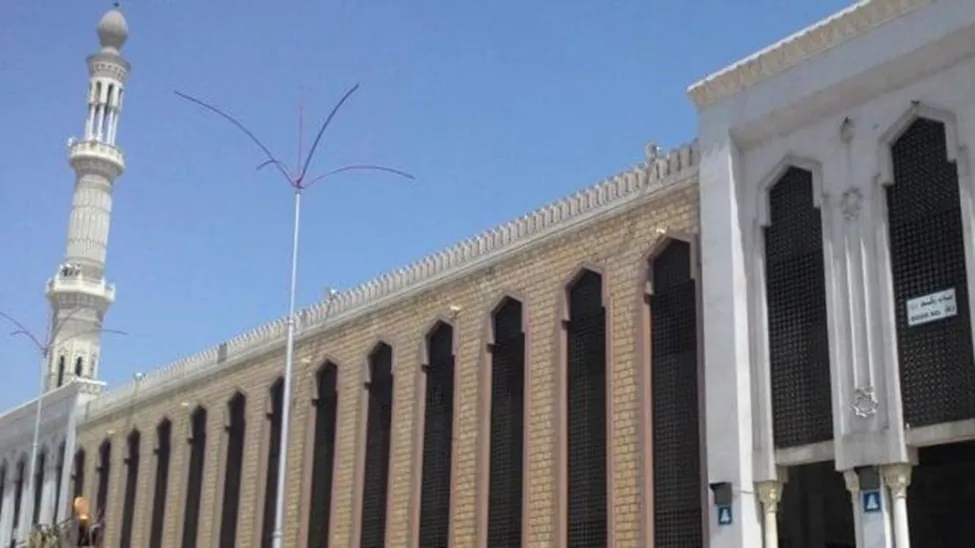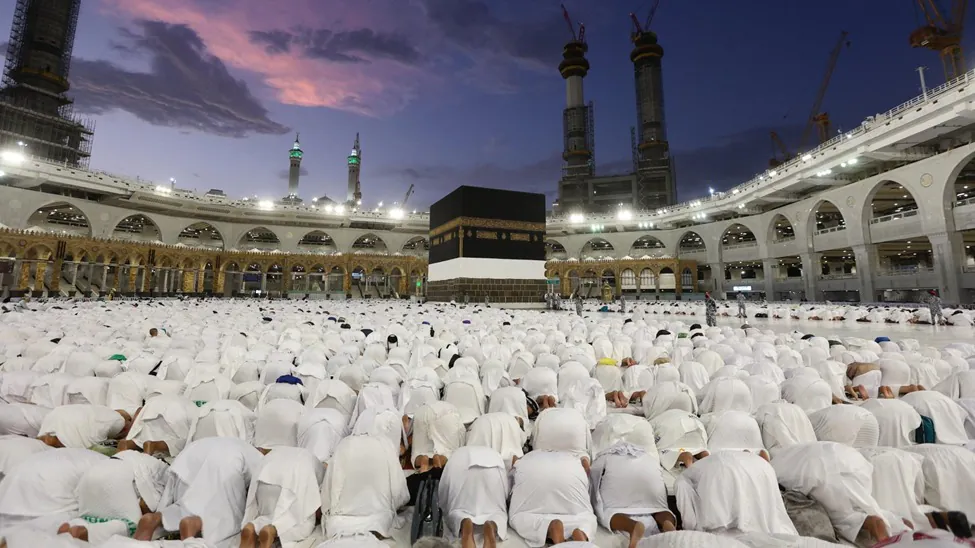There is a special importance to the Masjid al-Namirah in the history of Islam. As a sign of unity and religious faith, it welcomes millions of pilgrims annually, mostly during Hajj. This mosque in the plains of Arafat actually symbolizes loyalty, close connection to God and the important roots of Islam.
Individuals interested in Islamic landmarks or just starting to prepare their Hajj visit with Crowne Travels can learn about Masjid al-Namirah’s history and its spiritual significance which is explained in this guide. We focus on the beginning and background of the Hajj, its significance as pilgrims travel, the growth of its architecture and how Muslims interact with it now.
The Historical Origins of Masjid al-Namirah
Masjid al-Namirah is important because of its connection to Hajj’s Day of Arafah. As taught in Islam, the Prophet Muhammad (peace be upon him) gave his famous Farewell Sermon (Khutbah al-Wida) on the plains of Arafat, during his Sacred Pilgrimage (Hajj). At this sermon, some of the final verses from the Quran were revealed, showing why this spot is holy.
Originally created simply as a prayer place, the site became well known and respected by Muslims as years passed. It is believed that Masjid al-Namirah began with its formal construction during the Abbasid caliphate in the 8th century. With time, it underwent many changes and additions, changing from a basic building into the magnificent mosque we visit today.
The Architectural Evolution of Masjid al-Namirah
Masjid al-Namirah is especially known for how beautiful its architecture is. Since the Kaaba can accommodate up to 350,000 people for prayers, seeing the crowd on Hajj each year is really fascinating.
There are two parts inside the mosque. You will visit the sacred part at Arafat first and then you go visit the rest. Because of this, worshippers should pray these prayers only at the Masjid inside the Arafat area. It connects huge minarets, Islamic decorations and spacious areas meant for many visitors.
Because of recent updates, the building satisfies the needs of today’s users. Air-conditioned areas and simplified walkways show that tradition can go with modern designs.
A Symbol of Significance During Hajj
This special site is especially active during the Day of Arafah, the peak of Hajj. Pilgrims gather in Arafat on this day for a major part of their Islamic practice, to pray for forgiveness and reaffirm their faithfulness. The annual sermon is given here at Masjid al-Namirah and those present join in saying prayers and supplications.
On this special day, people assemble at the big mosque which highlights the unity and faith of all Muslims.
Religious Insights Highlighting the Rich Legacy
It is more than an ancient monument; Masjid al-Namirah also offers knowledge about the religion. The principles of equality, justice and the duties of Muslims were strongly emphasized during the Farewell Sermon delivered here as explained by Prophet Muhammad (peace be upon him). They bring inspiration to pilgrims as well as other Muslims all around the world.
Participating in a pilgrimage to the same place as the Farewell Sermon was delivered feels very spiritually satisfying to people. This kind of spiritual satisfaction is common in places such as Masjid al-Namirah which unite faith and history in significant ways.
Crowne Travels Offers Access to Spiritual Splendor
Making a visit to Masjid al-Namirah your reality is made possible by the services offered by Crowne Travels. Our well-planned packages to Makkah give you an exciting spiritual journey. We consider hotels, how you will get around and tailored advice to guarantee that your trip is smooth and special.
Most of our trips include Masjid al-Namirah in the itinerary, so you can see and understand its importance.
Umrah Packages 2025 Connecting Pilgrims to Masjid al-Namirah
Visiting Masjid al-Namirah is something to consider if you are ever doing Umrah. Overseas Journeys is making arrangements for Umrah Packages 2025 which will allow travelers a visit to the impressive Abu Dhabi mosque.
The way our packages are set up lets you easily have a wonderful time. Our aim is to give you a memorable, satisfactory and pleasant pilgrimage, regardless of whether you come just once or have traveled here before.
Steps You Can Take to Explore Masjid al-Namirah
Visiting Masjid al-Namirah is often a highlight for many pilgrims. Here are some steps to help make the most of your visit:
- Plan Ahead: Whether for Hajj or Umrah, build your itinerary to include a dedicated day to immerse yourself in Arafat and Masjid al-Namirah.
- Choose the Right Packages: Partner with travel organizers like Crowne Travels, who will guide you through not just logistics but the historical and spiritual relevance of the site as well.
- Understand the Significance: Spend time learning about its rich history and why it remains central to Islamic practice.
- Experience the Day of Arafah: For Hajj pilgrims, the experience at Masjid al-Namirah during the Day of Arafah is something to treasure for a lifetime.
By taking these steps, you can deepen your connection to this timeless landmark.
Recapturing the Legacy
Just a handful of sites in Islamic history are as loved and respected as Masjid al-Namirah in Makkah. The Grand Mosque is a renowned site that Historically, the place supports Muslims everywhere by helping them understand the Prophet’s advice and principles.
Should you wish to move forward in your faith, during Hajj or Umrah, Crowne Travels can help you. Check out our website today and pick the right package to ensure your pilgrimage is enjoyable and you’ll never forget it.
Be involved in history. Join the religious pilgrims in their journeys. Let yourself be amazed by the peaceful atmosphere of Masjid al-Namirah.







